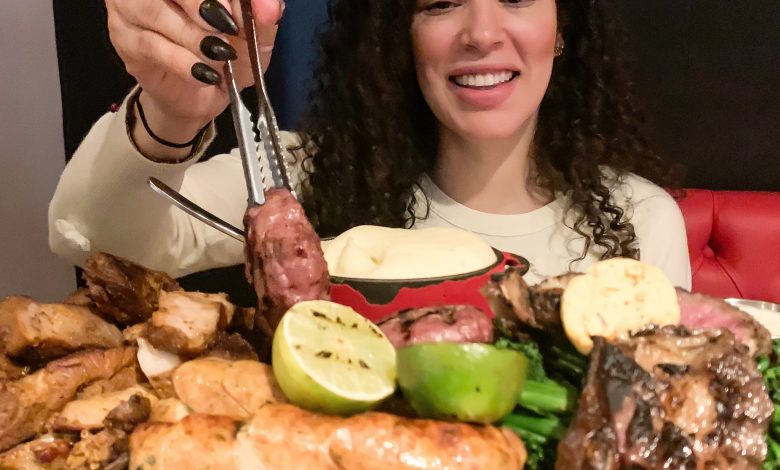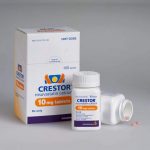What Foods Should Be Avoided When Taking Crestor?

For most people, taking a new medication may mean switching up your lifestyle a bit and that includes the foods you eat. A food-drug interaction means that a specific nutrient or compound within the food changes the way your body metabolizes the medication, and this can either enhance or reduce the dose your body gets, according to Johns Hopkins Medicine. The potential results: an increased risk of side effects, many of which can be dangerous, or the drug not working as it was intended.
Before introducing a medication, ask your pharmacist about any food interactions, including with alcohol, and any adjustments you may have to make to your diet.
What is Crestor?
Crestor is a brand of rosuvastatin, a medication used together with diet, weight loss, and exercise to reduce the risk of heart attack and stroke and to decrease the chance that heart surgery will be needed in people who have heart disease or who are at risk of developing heart disease.
Rosuvastatin is also used to decrease the amount of cholesterol such as low-density lipoprotein (LDL) cholesterol (‘bad cholesterol’) and triglycerides in the blood and to increase the amount of high-density lipoprotein (HDL) cholesterol (‘good cholesterol’) in the blood. Rosuvastatin may also be used together with diet to decrease the amount of cholesterol and other fatty substances in the blood in children and teenagers 8 to 17 years of age who have familial heterozygous hypercholesterolemia (an inherited condition in which cholesterol cannot be removed from the body normally). Rosuvastatin is used together with diet, and alone or in combination with other medications, to decrease the amount of cholesterol and other fatty substances in the blood in adults, children, and teenagers 7 to 17 years of age who have familial homozygous hypercholesterolemia (an inherited condition in which cholesterol cannot be removed from the body normally).
How Crestor (Rosuvastatin) works
Rosuvastatin is in a class of medications called HMG-CoA reductase inhibitors (statins). It works by slowing the production of cholesterol in the body to decrease the amount of cholesterol that may build up on the walls of the arteries and block blood flow to the heart, brain, and other parts of the body.
Accumulation of cholesterol and fats along the walls of your arteries (a process known as atherosclerosis) decreases blood flow and, therefore, the oxygen supply to your heart, brain, and other parts of your body. Lowering your blood level of cholesterol and fats with rosuvastatin has been shown to prevent heart disease, angina (chest pain), strokes, and heart attacks.
How should this medicine be used?
Rosuvastatin comes as a tablet (Crestor) to take by mouth. Rosuvastatin also comes as a capsule (Ezallor) to take by mouth or to open, mix with water, and give through a feeding tube. It is usually taken once a day with or without food. Take rosuvastatin at around the same time every day. Follow the directions on your prescription label carefully, and ask your doctor or pharmacist to explain any part you do not understand. Take rosuvastatin exactly as directed. Do not take more or less of it or take it more often than prescribed by your doctor.
Your doctor will probably start you on a low dose of rosuvastatin and gradually increase your dose, not more than once every 2 to 4 weeks. Rosuvastatin (Crestor) is typically taken as 10 mg to 20 mg by mouth once daily. The dose may be adjusted depending on risk factors, family history, ethnicity, and side effects. The 40 mg dose of rosuvastatin (Crestor) is generally only used for people who do not meet their cholesterol goals on the 20 mg dose.
Swallow the capsules (Ezallor) whole; do not chew or crush them. If you cannot swallow the capsule, open the capsule and carefully sprinkle the contents onto 1 teaspoonful of applesauce. Swallow the entire mixture immediately without chewing. Do not save the applesauce mixture for later use.
Continue to take rosuvastatin even if you feel well. Do not stop taking rosuvastatin without talking to your doctor.
What foods should be avoided when taking Crestor?
The following foods should be avoided when taking Crestor:
1. Red meat. You should avoid red meat while taking Crestor because beef, pork, and lamb are generally high in saturated fat. Cut of meat like hamburgers, ribs, pork chops, and roasts are highest in fat. You don’t have to avoid meat entirely, just eat it only on occasion. Limit yourself to the recommended 3-ounce portion size and stick to leaner cuts like sirloin, pork loin, or filet mignon. Better yet, replace meat with proteins that are lower in saturated fat and cholesterol, like skinless chicken or turkey breast, fish, and beans.
2. Fried foods. Foods that have taken a dip in the deep fryer, like chicken wings, mozzarella sticks, and onion rings are among the worst when it comes to cholesterol, you should avoid them while on Crestor. Frying increases the energy density or calorie count of foods. If you love the crunch of fried food, use an air fryer and toss your food in a little bit of olive oil. Or bake foods like potato wedges and chicken at a high temperature until they’re golden brown.
3. Processed meats. Hot dogs, sausage, and bacon use the fattiest cuts of red meat and therefore tend to be high in cholesterol and saturated fat. Bacon and sausage made with turkey or chicken might seem healthier, and they are somewhat lower in cholesterol than the red meat versions, but they’re not cholesterol-free.
4. Baked goods. Cookies, cakes, and pastries are often made with large quantities of butter and shortening, making them high in cholesterol. You don’t have to give up dessert entirely, just make a few substitutions. When you bake, use applesauce or bananas in place of butter. Or have low-fat frozen yogurt topped with berries for dessert.
5. Alcohol. Alcohol contains sugar and excess sugar increases triglyceride levels. Beer, liquor, and wine all contain sugar, so all types of alcohol may be a problem for those with high triglycerides. Talk to your doctor if you have high triglycerides. Your doctor may recommend that you limit your intake of alcohol or that you avoid it altogether. In addition to increasing triglycerides, alcohol consumption is linked to an increased risk of head and neck cancer, esophageal cancer, breast cancer, liver cancer, and colorectal cancer. If you find it difficult to cut back or stop drinking alcohol, your doctor can recommend strategies that can help you quit.
6. Coconut products. Coconut is a trendy food these days. Coconut milk, coconut cream, coconut oil, and coconut flakes line grocery store shelves. Too much coconut can be a bad thing as it is high in saturated fat. If you need to lower your blood triglyceride levels, ask your doctor if you can safely consume coconut and if so, how much. In addition to increasing triglycerides, diets high in saturated fats such as those found in coconut products increase total cholesterol and bad LDL cholesterol. If your doctor says it is safe for you to consume some coconut products while on Crestor, choose low-fat coconut milk and low-fat coconut flakes to further limit your intake of saturated fat.





